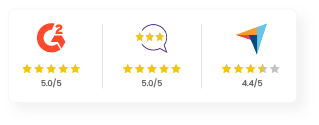Leveraging an LMS for Learning in the Flow of Work

Gone are the days when workforce training involved taking employees away from their work to sit in a structured classroom setting.
In a digital-first workplace, learning in the flow of work with advanced learn tech like a Learning Management System (LMS) has become a key strategy for keeping workforce competitive and agile. Moreover, with the rise of hybrid and remote work models, it’s now all about training solutions that fit seamlessly into employees’ daily workflow.
What is Learning in the Flow of Work?
“Learning in the flow of work” is a term coined by Josh Bersin in 2018. He recognized that the biggest hurdle in workplace learning is the lack of time for employees. In fact, a LinkedIn survey of 4,000 L&D and business professionals highlighted this as the top challenge they face.
Instead of scheduling formal, time-intensive training sessions, this model ensures that learning happens organically as employees engage in their everyday tasks. Whether they need to refresh a skill or learn something new, they can access knowledge right when it’s needed, plus in a format that minimizes disruption to their workflow.
In fact, research shows that employees who engage in learning during their workday are less stressed, more productive, and more confident. Specifically, employees who spend time learning at work are 47% less likely to be stressed, 39% more likely to feel productive and 21% more confident and happy.
Why Use an LMS for Learning in the Flow of Work?
To enable employees to learn in the flow of work, an LMS is the ideal platform because it enables L&D teams to deliver training content on demand, offering flexibility and scalability.
This approach ties directly into the 70-20-10 model of learning, which emphasizes that 70% of learning comes from on-the-job experience, 20% from interactions with colleagues, and only 10% from formal training.
By integrating learning into daily workflows with an LMS, employees can access practical, work-related content when they need it most. Result? Learning becomes much more relevant and is directly tied to job responsibilities and career growth. Employees are also able to retain the knowledge and apply it immediately to their tasks.
How to Use an LMS for Learning in the Flow of Work
Implementing learning in the flow of work with an LMS requires a strategic approach to ensure content is timely, relevant, and easy to access.
Here are some ways:
1. Just-in-Time Learning & Performance Support
Learning in the flow of work is most effective when employees can access the information they need at the moment they need it. Just-in-time learning modules provide quick, relevant content that helps employees overcome challenges or answer questions in real time.
For example, a sales representative can access a microlearning module on handling difficult customer objections right before a call so that they can apply their new knowledge instantly.
2. Contextual Search and AI Chatbots
Modern LMS platforms are equipped with AI-driven tools like chatbots and contextual search functions. These tools offer personalized, on-demand support by understanding the context of an employee’s query and delivering the most relevant information.
Whether it is a frontline worker needing help with a technical issue or a manager looking for leadership tips, AI-powered search ensures that employees receive accurate answers quickly, without interrupting their workflow.

Unleash the power of AI LMS for Learning in the flow of work
- Hyper-personalization
- Task Automation
- Enhanced Employee Engagement
3. Seamless Integration with Third-Party Tools
For learning to truly be embedded in the flow of work, it needs to be accessible through the tools that employees are already using. Leading LMS platforms integrate with popular productivity tools, such as Microsoft Teams, MS Office etc enabling employees to access learning resources without switching between apps. This integration ensures that learning becomes a natural extension of their daily tasks.
4. Digital Coaching and Personalized Development
Some LMS platforms offer digital coaching where employees can receive personalized feedback and guidance on their professional development. Through virtual coaching sessions and automated progress tracking, employees can continuously refine their skills and work toward their career goals. What’s more, they can do this without needing to leave their work.
5. Gamification and Engagement Tools
Engagement is critical for learning retention, and LMS platforms include gamification features to boost participation. With elements like leaderboards, challenges, rewards, and badges, LMS platforms motivate employees to engage with learning content more frequently. This creates a sense of accomplishment and friendly competition which makes learning in the flow of work more enjoyable and effective.
6. Microlearning Opportunities
Another way to integrate learning into the flow of work is by offering bite-sized, easy-to-digest microlearning modules through an LMS. These short lessons focus on specific skills or topics and can be completed in a matter of minutes. Whether it’s a quick refresher on project management techniques or a tutorial on using a new software tool, microlearning ensures that employees can continue learning without taking large chunks of time away from their work.
Parting Thoughts
As businesses continue to adopt hybrid and remote work models, the need for flexible learning solutions will only increase. LMS platforms are at the forefront of this shift.
By leveraging an LMS to facilitate learning in the flow of work, organizations can boost employee engagement, enhance productivity, and ultimately drive business success.











